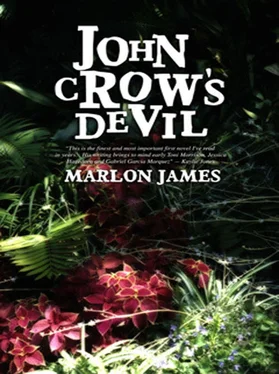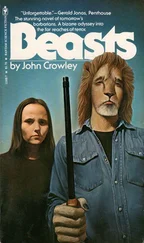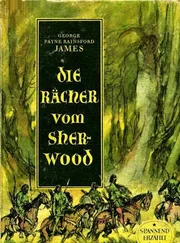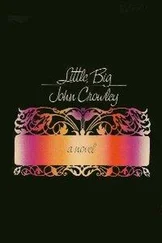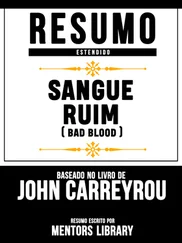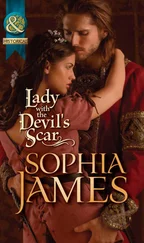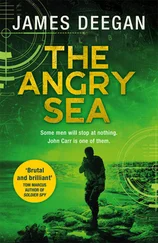Three days after Sunday, she was found, etherized in the blackened river mud, body stiff with rigor mortis. On her back with her legs spread wide, she looked ready for sexual intercourse. She seemed to have drowned. A dead calf was nothing new to Gibbeah, or to Mrs. Fracas, who fainted at the sight. There was no sign of what contributed to the cow’s demise except one: Her head was upside down. And though there was mud all over her, there was none on the calf’s neck. No cut, no scar, no stitch either. Neck grew into upside-down head as if the animal were born that way. To Mrs. Fracas, who saw the calf first, and Clarence, who saw it after, the answer was immediate and obvious. This was the Devil’s work.

The Widow Greenfield, with her grocery list in tow, had a simple mission. She had broken her own word and allowed the Rum Preacher back into her husband’s bed. Hector Bligh seemed so close to death himself. For this there were arguments to take up with God, but not right now. In a few minutes she would have a far more severe argument with someone else.
In the grocery shop people looked at her in a new way, with heads tilted and eyes that darted as her gaze met theirs. When a man went to live with a woman she became a sexual creature. Widow Greenfield getman at last before the pokie dry up . But this was not man but Devil. The Apostle spoke it in prophecy. The Widow was defiant. Turn on a light in fi them house and everybody scramble like roach. Not even Lucinda could cast first stone. She knew her. Lucinda tried so hard to put up one face that she was probably hiding another. She had tried to steal the Widow’s husband. The Widow remembered Lucinda eleven years ago, standing across the road from the wedding reception in her black veil and funeral dress, resembling a John Crow. Lucinda spied on the Greenfields when they were doing married people things. But the animosity ran deeper than that. Before marriage, before puberty.
At preparatory school, the girls called Lucinda plain, the boys called her ugly, but she imagined herself a beauty queen. Sessions in the outhouse were lessons in poise. It was her only relief from a recent whipping or escape from an upcoming one. She fixed a crown made of cardboard and tin foil to her head and grasped the scepter made from hibiscus bush as she crossed her legs at the ankle like the queen. On that day when Lucinda was on the throne, with her legs crossed and her ankles knotted up in her panty, she perfected her victory wave. The audience she imagined became real as the toilet door swung open. There in front and laughing so hard that tears ran down her face was the Widow Greenfield, then called Mary Palmer, along with Clarence, Buntin, soon to be Deacon Pinckney, Vixton Dixon, soon to be Brother Vixton, and Elsamire, soon to be deceased. Lucinda gripped her scepter trembling and crossed her legs tighter. Then she rose, regally, but the panty that had bound her legs together betrayed her and she tripped, falling face first in the muddy bush. Mary Palmer and her friends tumbled in the grass as well, grabbing their sides as if laughter threatened to burst from their bodies. They christened her Lucinda Queenie and off they went, with Mary’s laughter a whirlwind barreling away. Lucinda did what she always did. She rose and straightened herself. Then she went inside, tore a page from her exercise book, and wrote a curse on every person who had wronged her, just as she saw her mother do. Her hatred was a fire that no man or God could put out. A fire that raged with their happiness and celebrated their tragedy. Lucinda Queenie made a deal with the Devil.
The Widow had not thought of the past in years, and found it odd that on this day she should remember.
“Hello? Hello? Excuse, please? Hello! Is you me talking to!”
“Me occupied with a customer, ma’am, so stop the cow ballin in me shop.”
“Customer? But me no see no customer! Me is the only customer in here buying anything.”
“Excuse me, ma’am.”
“Yeah, you excuse you damn self and come back with half pound o sugar and two pound o flour.”
“We don’t have none.”
“You don’t have no flour or sugar?”
“We don’t have neither. Go check somewhere else.”
“You don’t have neither, eeh? Then what you have in that bag by you foot mark flour, dog shit?”
“We don’t have—”
“Listen here, don’t take woman fi idiot! Is the flour bag that right at you foot and you telling me that you don’t have none to sell,” to which the shopkeeper, a rotund half-Chinese man in his forties, with thick glasses and thinning hair, came over to her. His face was less than a foot away from hers.
“No, you dry-up black bitch. We don’t have none to sell to you.”
The Widow pulled back. Eyes were upon her. She could feel every single one. A stare was a physical thing. Even after she grabbed her bag and left the shop, she could still feel their eyes on her, satellites for his eyes. They cut past skin and flesh and made bones tremble.
“Go with the Lord, ma’am.”
At the mouth of the bridge they waited for her return. With every stomp of her feet — seven miles to the nearest shop and back — her anger grew, pumping with the swifter beat of her heart. But at the mouth of the bridge fury withered and fear returned. The Rude Boys were waiting. Now they were Rude Boys for Christ, but that made them no less rude. She passed them on the bridge in silence. The Widow clutched her bags close and continued with her head straight and eyes ahead. At a good distance she turned around and they were no longer on the bridge. The Widow willed the lump back down her throat when she realized that they were following. The leader, tall and fat, swung from one side of the road to the other. The Widow walked faster. The Rude Boys followed. They would kill her with little effort, but toy with her first; four cats with one mouse. A can tumbled ahead of her and banged against the sidewalk. Several stones, some hitting her shoe, followed. They kicked garbage, dried shit, and cans. She walked faster, almost tripping over one of the things that hit her foot. Their footsteps sounded like a march. The Widow ran, cursing her burden and the man who was the cause. Clutching the bags, she almost ran past the gate. By the time she struggled to free the latch, they were gone.

Lucifer was not about to leave Gibbeah without a fight. Even now his servants in darkness were congregating. Multiplying. Possessing. They were ready to celebrate the victory of the Prince of Darkness, but no! said the Apostle to a circle that had gathered around the twisted calf. The Five had dragged it to the side of the road only minutes before. “Satan, we’re sending this abomination straight back to the Hell you brought it up from.” The Five sprinkled the calf with kerosene and the Apostle set it ablaze. He prompted those who were on the choir to sing “How Great Thou Art.” The Apostle spread his arms and prayed in tongues, but this was no Abba babba tongues. The fire, larger than expected, shot up through the dusk. The smell of kerosene and cow fat circled the village.
Lucinda followed him back to the church office, but the door was shut in her face. The keyhole was also shut. Leaving, she saw one of his red books left by the window.
“Apostle?”
The book’s pages smelt of old dust. Lucinda suppressed a tiny cough. Inside was his handwriting: dashes, slants, curves, and strikes that sometimes fell off the page. Most she could not make out, but he wrote “secret flight” in bold, block letters.
Читать дальше
